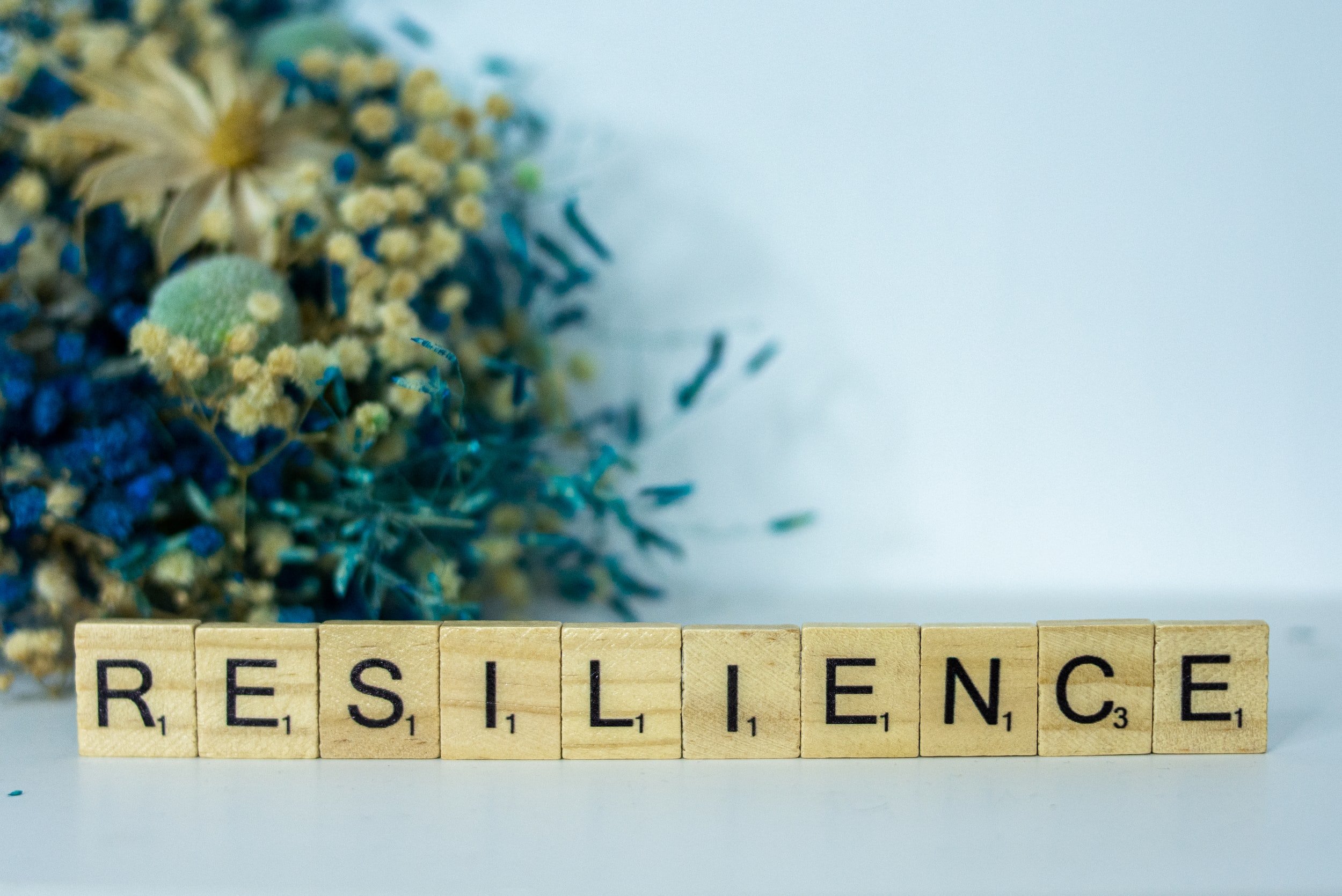Mental Health and Resilience
Why do we care?
It is critical for athletes and their support system be aware of the impact mental health has on injury prevention and healing.
Our body is directly connected to our mind. There are direct pathways connecting our brain and immune system. Negative emotions experienced during mental health difficulties such as depression, anxiety, and post-traumatic stress disorder (PTSD) directly influence physical health.
Stress and the Role of the Social Group
Psychological stress is a dominant precursor to injury. It leads to distraction and elevated self-consciousness which put athletes at higher risk to injury during performance. Mental health difficulties increase a stress hormone called ‘cortisol’ in our blood. This subsequently increases muscle tension which further predisposes athletes to injury.
Mental health difficulties often follow injury by the same cortisol hormone mechanism. It is important to monitor the emotional responses of the injured athlete during every stage of healing and as they return to activity. Psychological stress is natural following significant injury, but left unhandled, it is associated with decreased quality of life, poorer coping, slower healing, and increased pain.
You or the injured athlete in your life can learn resilience. Orthopedic clinicians are beginning to screen and assess for mental health in their patients to make referrals for counseling or support, but this holistic care management is still quite limited. In addition to improving pain, well-being, and recovery, resilient responses to an injury promote a greater likelihood of returning to sport more quickly and at pre-injury level of ability.
Athletic trainers, coaches, family, and friends are in a good position to recognize symptoms of stress. Identifying symptoms early allows for timely interventions and accurate referrals to mental health professionals which can play a role in injury prevention and promote an optimal recovery when injuries do occur. Orthopedic clinicians are beginning to screen for poor mental health in their patients to make referrals for counseling, but this holistic care management is unfortunately still quite limited.
-
• Poor performance or perceived poor performance in school, sport, or work
• Lack of playing time
• Conflicts with coaches or teammates
• Family or relationship issues
• A debilitating injury or illness, resulting in a loss of playing time, surgery, or end of career
• Concussions
• Body image
• Expectations by self/parents/community
• Violence, physical / sexual abuse, bullying, hazing
• Adapting to busy school schedule
• Lack of sleep
• History of mental disorder
• Disordered eating
• Gender and sexuality issues
• Burnout from sport or school
• Anticipated end of playing career
• Death of a loved one or close friend
• Alcohol or drug abuse
• Significant dieting or weight loss
• Gambling problems
Many of these events can be applied to describe a working, casual athlete after high school or college sports.
-
When we hear the word “injury” our minds jump to the physical response: pain. Emotional responses are normal nonetheless and are to be just as expected while processing new medical information and coping with the injury. Emotional responses may take the form of:
• Sadness
• Isolation
• Irritation
• Lack of motivation
• Anger
• Frustration
• Changes in appetite
• Sleep disturbance
• Disengagement
These responses become problematic when they persist, worsen, or become excessive.
-
Persistent symptoms:
• Alterations of appetite
• Sleep disturbance
• Irritability
Worsening symptoms:
• Alterations of appetite leading to disorder
• Sadness leading to depression
• Lack of motivation leading to apathy
• Disengagement leading to alienation
Excessive symptoms:
• Pain behaviors
• Excessive anger or rage
• Frequent crying or emotional outbursts
• Substance abuse
These patterns lead us to believe that an athlete may be experiencing depression1, anxiety2, PTSD3, or disordered eating5 (hyperlink and define each), each in which increase risk for injury/reinjury or slow down recovery. It is important to check in with yourself daily; you are the real expert. How are you feeling throughout the day? Are these emotions resolving during recovery at all? Injury can distract and interfere normal behavior or a person’s ability to ask these questions. To reiterate, it is key that a person’s family, friends, coaches, and medical care team monitor how someone’s emotional reactions change immediately after injury and as they progress during rehabilitation and returning to activity.
-
Athletes are less likely to identify their mental health issues and ask for help compared to non-athletes. This makes it even more important that an athlete’s support network realizes their role in helping the athlete consider treatment.
In many cases, athletes grow up instilled with toxic ideas on toughness, putting these athletes at a greater risk for persisting mental health issues. For example, athletes are often encouraged and accustomed to working through pain. They may consider seeking counseling as a sign of weakness, reinforcing the stigma surrounding mental health services. Sometimes, a sense of entitlement accompanies a successful athlete; it is possible they may have never had to struggle before or never developed resilience for dealing with failure.

Training Resilience
Post traumatic growth, or the potential for positive change resulting from adversity of injury is possible, but it requires resilience. Fortunately, it can be learned. Injury is a devastating event for an athlete, but it offers a chance to build resilience that can better athletic performance after recovery.
The strategies below truly strengthen and train pathways in the brain that support resilient traits which help the body heal, quickly, and with less pain. These strategies also reinforce your mind to respond to future life challenges with resilience as well.
BUILDING A RESILIENT BRAIN
to promote well-being, injury prevention, and healing
-

Active Coping
The mere act of doing something, rather than nothing or something passive, can decrease stress.
-

Control
A sense of control can reduce fear and stress of an injury. Take the reins of what is in your control.
-

Self-efficacy / Self-esteem
Grow your motivation and resilience while reducing depression and pain.
-

Growth Mindset
In every situation, we have a choice in our response. Do you have a growth mindset improving your healing? or a fixed-mindset slowing your healing?
-

Sleep
Sleep is important for repairing muscle and necessary to make adaptations in speed, endurance, strength, and power. But more importantly, sleep is crucial to healing after surgery.
-

Exercise
Exercise can decrease stress and improve and sleep. It is even possible after injury or operation.
-

Social Connection and Support
You or the athlete in your life should be surrounded by their most positive friends and family to promote coping and healing.
-

Gratitude
Learn about the endless mental and physical benefits of practicing gratitude.
-

Optimism
What we believe to be true in our mind influences how our body and biology functions.
-

Mindfulness
Mindfulness is the process of purposefully observing your present thoughts without judgment. Mindful thinking underlies every resilience strategy above, compounding your healing potential.
-

Cognitive-Behavioral Therapy
Cognitive-behavioral therapy is facilitated by a mental health clinician and serves an effective medication for treating anxiety and depression.
-

Emotion Expression
Putting your experience into words helps to improve your mental and physical health.
-

Time in nature
Contact and connection with nature is linked with many improvements in mental health and well-being.
Mental Health First-Aid
Mental health crises occur much more frequently than typically assumed. They may take place on or off the court or field, before, during, or after injury. Similar to the importance of knowing how to respond when someone is choking or having a heart attack, it is far-reaching to understand how to assist someone having a mental health crisis. Anyone should consider taking a training course on mental health first-aid.
-
First thing is first. Look for signs of suicide risk, such as threatening to hurt of kill oneself, talking about death and dying, or taking reckless or risky actions. Call or text the National Suicide Prevention Hotline at 1-800-273-TALK (8255) to get prompt help if someone’s life seems to be in immediate danger now or in the near future or for crisis counseling in general.
-
Listening and empathizing with someone is a true skill. It is important in helping someone work through and understand their feelings as well as feel respected, accepted, and understood. If someone can establish this comfort with you, then you are more likely to assist them.
Seek a meaningful conversation by using verbal and non-verbal empathetic strategies.
Verbal skills:
- Validation: Respond showing you respect and understand another person’s experience
Repeat or reflect back to someone what you hear them saying or feeling
Seek clarification
Utter well-timed, short affirmations to express that you understand something such as “right,” “that makes sense,” or “I can empathize that you feel unmotivated. I can see how not being able to play the sport that brings you such meaning discourages you from pursuing other daily activities with vigor.”
Nonverbal skills:
- Good eye contact, nodding your head, and facing who you are listening to while keeping an open posture
- Maintaining attention and focus. Try to really sense how someone is feeling and needing without internally judging or assuming.
-
Again, respect the athlete and their dignity. Mental health illnesses exist just as physical ones do and should likewise exist without stigma. We seek treatment for rather than blame individuals for their physical injuries, and we should expect the same response to mental crises. Encourage the athlete to consider seeking help or offer the athlete a resource for help and emotional support. Do this in a manner that avoids giving advice or suggests anything other than equality between you and the athlete.
-
Types of professionals that can help with mental crisis: clinical psychologists, primary care physicians or psychiatrists, social workers and counselors, or certified peer specialists
Types of professional help: Cognitive-behavioral therapy via talk appointments, medication, mindfulness training
-
Suggest resiliency techniques or self-help books based on cognitive behavioral therapy. Encourage engagement with family, friends, or faith support networks.
Find a clinician in your area that fits the needs of you or the athlete in your life.
Check out the references used to inform this page
This website contains a compilation of information gathered. I am not a trained professional. Please consult your healthcare team before taking any advice from this site.






